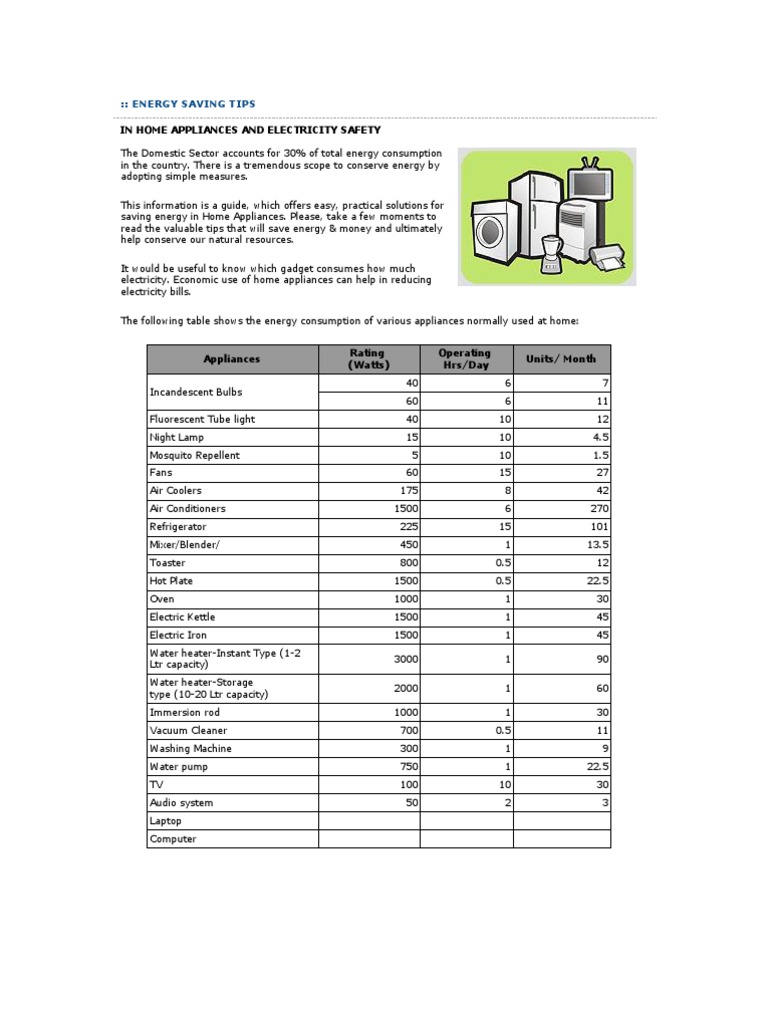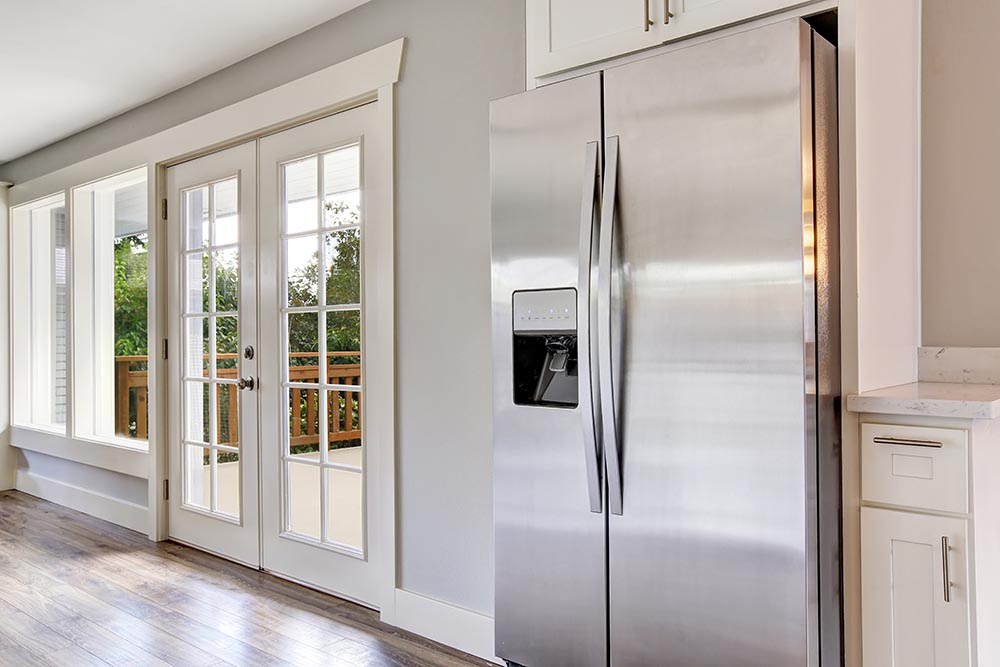

Tips for Ensuring the Safe Use of Major Appliances is an essential guide for preventing accidents and maintaining a safe home environment. Imagine returning home after a long day to find your kitchen ablaze due to a malfunctioning appliance. Or perhaps you are facing a minor, but persistent issue, that’s costing you time and money to resolve.
This guide will explore crucial preventative measures to ensure the safe use of major appliances, such as ovens, refrigerators, dishwashers, and washing machines. We will address common safety hazards, detailed maintenance procedures, and important troubleshooting steps. This is designed for all homeowners, regardless of experience level, who want to understand and implement fundamental principles of appliance safety. The structure of this article will cover key safety guidelines, address common causes of accidents, provide troubleshooting tips, and ultimately equip you with the knowledge and confidence to ensure the safe and efficient use of your major appliances.
Understanding Common Appliance Hazards
Electrical Dangers
Electrical issues are among the most common causes of appliance accidents. Overloading electrical circuits is a significant hazard, as it can lead to dangerous overheating and potential fires. Damaged or frayed cords can expose wires, creating electrical shock risks. Improper grounding can also be a severe safety concern, increasing the likelihood of electric shocks. To mitigate these risks, it’s crucial to follow manufacturer’s guidelines and never overload electrical outlets. Using surge protectors can also help prevent damage to appliances from unexpected power surges.
Mechanical Malfunctions
Mechanical malfunctions in major appliances can also cause accidents, particularly if not detected and addressed quickly. Issues with hinges, doors, or moving parts can lead to injuries, while damaged components might cause appliance failures and fire risks. Regular inspection of appliance components for wear and tear is vital to maintaining safety and preventing unexpected malfunctions.
Improper Use and Maintenance
Improper use of appliances and neglecting regular maintenance are frequently overlooked hazards. Ignoring the manufacturer’s instructions can significantly increase the risk of accidents. For example, not properly cleaning a dishwasher or oven can lead to clogs and buildup, which can cause malfunctions and fire risks. Failure to inspect and clean your appliances after use can lead to a buildup of grease and food particles, potentially impacting efficiency and increasing fire risks.
Appliance Maintenance Best Practices
Regular Inspections and Cleaning
Routine maintenance is a cornerstone of appliance safety. Regularly inspect appliance cords, plugs, and external components for damage. Cleaning appliances regularly can also help prevent build-up of grease, food particles, and debris, which can cause malfunctions and fire hazards. Regular cleaning ensures proper function and reduces the risk of potential issues. For example, regularly cleaning the lint trap on your dryer can prevent fires.
Understanding Electrical Systems
Thoroughly understand the electrical system of your home, especially when it comes to major appliance usage. Ensure circuits are not overloaded and that appliances are properly grounded. Overloading circuits leads to overheating issues and potential electrical fires.
Maintaining Proper Ventilation
Proper ventilation is essential for appliances, particularly those that generate heat, like ovens and dishwashers. Ensure adequate ventilation space is provided to prevent heat buildup and potential fires. Also, ensure appliances are not positioned against flammable materials.
Troubleshooting and Repair
Identifying Potential Problems
Recognizing potential problems with your appliances early is essential. Listen for unusual sounds, check for leaks, and examine any unusual smells. Promptly address these issues before they escalate into serious safety concerns. Be aware of the warning signs of malfunctioning components. For instance, unusual noises from a washing machine might indicate a damaged belt or bearing, which can cause damage if not addressed immediately.
Seeking Professional Help
When confronted with complex appliance issues, seeking professional assistance is vital. Don’t attempt to repair appliances yourself if you lack the necessary expertise or equipment. Contacting a qualified technician to diagnose and resolve issues ensures proper and safe operation and prevents further damage.
Understanding Appliance Manuals
Always refer to the manufacturer’s manual for specific instructions on operation, maintenance, and troubleshooting. The manuals provide invaluable guidance on safe usage and troubleshooting.
Safety Precautions for Specific Appliances
Oven Safety
Proper oven maintenance is critical. Clean the oven regularly to prevent grease buildup. Never leave food unattended while cooking. Keep flammable materials away from the oven. Always ensure the oven is properly ventilated.
Refrigerator Safety
Refrigerator maintenance includes regular cleaning and defrosting to prevent odors and potential food contamination. Check for damage to the refrigerator’s sealing system to ensure it maintains proper temperature. Avoid placing hot items in the refrigerator. Never store flammable materials in the fridge.
Dishwasher Safety
Make sure your dishwasher is correctly grounded to prevent electrical shocks. Only use detergents and rinse aids approved by the manufacturer. Check that the dishwasher is properly leveled to prevent water leaks. Do not overload your dishwasher.
Avoiding Electrical Overload
Circuit Breaker Safety
Understanding your home’s electrical system and circuit breakers is essential. Be aware of the maximum amperage each circuit can handle. Never overload circuits, which can lead to overheating and fire hazards.
Surge Protector Use
Using surge protectors can help protect your appliances from power surges. They act as a safety net, preventing damage to sensitive electronics from power spikes.
Power Strip Management
Manage power strips effectively to prevent overloading. Don’t plug too many appliances into a single power strip. Be mindful of the total wattage of all appliances plugged in together.
Frequently Asked Questions
What are some common causes of appliance accidents?
Many appliance accidents stem from user error, such as improper use, neglect, or lack of maintenance. Faulty wiring, damaged cords, or inadequate grounding can also contribute. A critical factor is overloading electrical circuits, which often leads to dangerous overheating and potential fires. Furthermore, neglecting to follow the manufacturer’s instructions or warnings can dramatically increase the risk of accidents. By understanding these common causes and taking preventative measures, you can minimize your risk.
How can I prevent appliance fires or other injuries?
Preventative measures are paramount in maintaining safety with major appliances. Regular maintenance checks, like inspecting cords and plugs, are essential. Avoid overloading circuits and make sure your appliances are properly grounded. Never use an appliance with a damaged cord or plug, as this significantly increases the risk of short circuits and electrical shock. Properly trained professionals should be contacted if you notice any irregularities with your appliances or electrical systems.
What should I do in case of an appliance malfunction or accident?
If you encounter an appliance malfunction or accident, prioritize safety. Disconnect the appliance immediately from the power source. Report the incident to your local authorities or the relevant appliance manufacturer. If someone is injured, call emergency services immediately. Do not attempt to fix the issue yourself, unless you have proper training and equipment. Following these steps can help mitigate the potential consequences of an appliance accident and prevent further damage.
In summary, ensuring the safe use of major appliances is crucial for a safe and efficient home environment. By understanding these safety tips, you can minimize potential hazards and enjoy peace of mind while using your appliances. Remember to always prioritize safety above all else, and never hesitate to consult a professional if you have any concerns about the proper operation or maintenance of your major appliances. For a more thorough understanding of these procedures and to stay updated on safety guidelines, you can always visit reputable appliance manufacturers’ websites or safety organizations dedicated to household appliances.